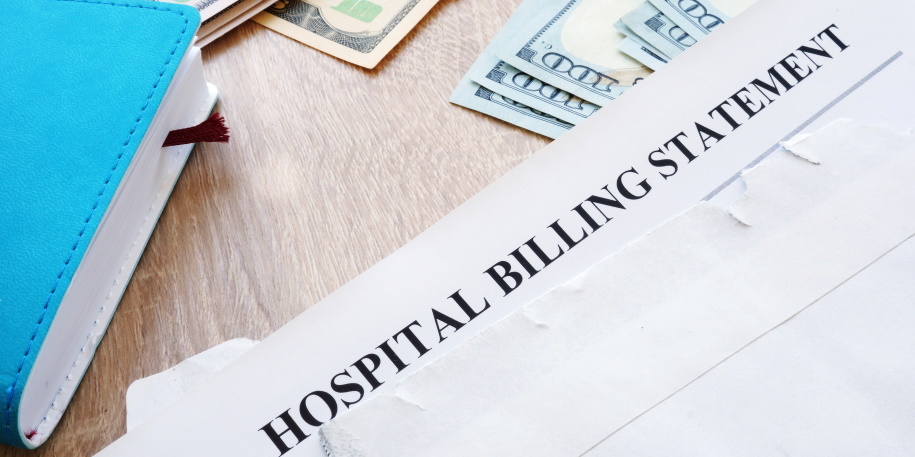Utilizing Chapter 13 to Cut Down Hospital Bills
When people need medical treatment, they’re usually not thinking about the bills that are going to be due later down the line. The fact of the matter is, things like cancer, heart attacks, or even a few broken bones can be very costly. Recent studies have shown that roughly a third of Americans currently have some kind of medical debt, and 28% of those people in that category owe $10,000 or more.
Medical expenses are one of the leading causes of debt in the country, and unlike tuition costs or a home mortgage, it is not a form of debt that is taken on willingly nor at a time of a person’s choosing. If you lack health coverage, one medical emergency can hinder your finances for years to come.
If you find yourself in a situation where you’ve incurred a large amount of medical debt with no end in sight, don’t worry. You still have options. One of those is filing for Chapter 13 bankruptcy.
What is Chapter 13 Bankruptcy?
Chapter 13 bankruptcy is a three- to five-year payment plan that typically requires you to pay a portion of your debt while enabling you to discharge the rest. The payment plan length and amount are entirely situational. It’s all going to depend on factors such as your individual income, assets, and what your debts are (amount and type of debt). The core idea of a Chapter 13 is that it makes paying back your debt more manageable while also protecting your key assets.
Unlike a Chapter 7 – which can lead to you losing non-exempt property – a Chapter 13 is generally considered to be the better option for those with assets they want to protect from liquidation, such as a home. Keep in mind, you will still have to pay certain debts in a Chapter 13 bankruptcy, including taxes, arrears on secured loans, and arrears on domestic support obligations. As per your Chapter 13 filing agreement, those debts must be repaid on the three- to five-year repayment plan. Medical debt, however, is handled differently. You do not have to pay medical debt in a Chapter 13 or Chapter 7 bankruptcy.
How is Medical Debt Treated in a Chapter 13 Filing?
Medical debt falls into the category of unsecured debt, and so it isn’t treated the same as a house or a car during a Chapter 13 filing.
During your repayment period, you may still have to pay a portion of your medical debt. This payment is going to be based upon your level of disposable income or your unprotected assets. This arrangement often ensures that your payment is manageable and mathematically realistic.
After the agreed-upon three- to five-year payment plan is over, the remainder of your medical debt is discharged. If you’re an individual who has incurred massive amounts of medical debt but doesn’t have the income to make a dent in it, then you can see why Chapter 13 might be an attractive option. The same holds true if you have credit card debt, personal loans, or certain obligations from a separation agreement or divorce.
Other Ways to Handle Medical Debt
You should only file for bankruptcy if it is your most cost-effective debt relief option. In regards to medical debt, consider the following options before filing for Chapter 13.
- Double-check your debt. Review your medical bills thoroughly to make sure that no errors were made and all the charges have been properly run through your insurance. Unfortunately, it’s not uncommon that there is a disconnect between the healthcare provider and the patient’s insurance carrier when it comes to billing.
- Negotiate a settlement pay-off or payment plan. Many hospitals and medical care providers are willing to work with patients who are making an honest effort to pay them back. Contact them and attempt to come to some sort of arrangement. Whatever you do, don’t ignore them or default on your bills. That will only make the situation worse.
- Get a low-interest personal loan or medical credit card. There are several low or zero percent interest introductory offers for paying off medical debt, which are far more beneficial than traditional credit cards. Be careful, however, of exchanging one debt you cannot pay with another. If you can’t pay off the debt within 3 years, you should consider settlement or bankruptcy.
Where Can I Get Help With Filing For Chapter 13 in Denver, Colorado?
If you live in the Denver area and feel like your medical debt makes you a candidate for Chapter 13, the next step would be to schedule a consultation.
Mike Wink has decades of experience helping clients evaluate and relieve medical and credit card debt. Contact us today to schedule your free consultation. We’re happy to answer your questions.
Please note that due to COVID-19 and enhanced safety protocols, all consultations are being conducted remotely until further notice.

